Entamanu Ngorongoro: life on the edge
Tanzania’s vast Ngorongoro Crater is home to one of the greatest concentrations of wildlife on earth
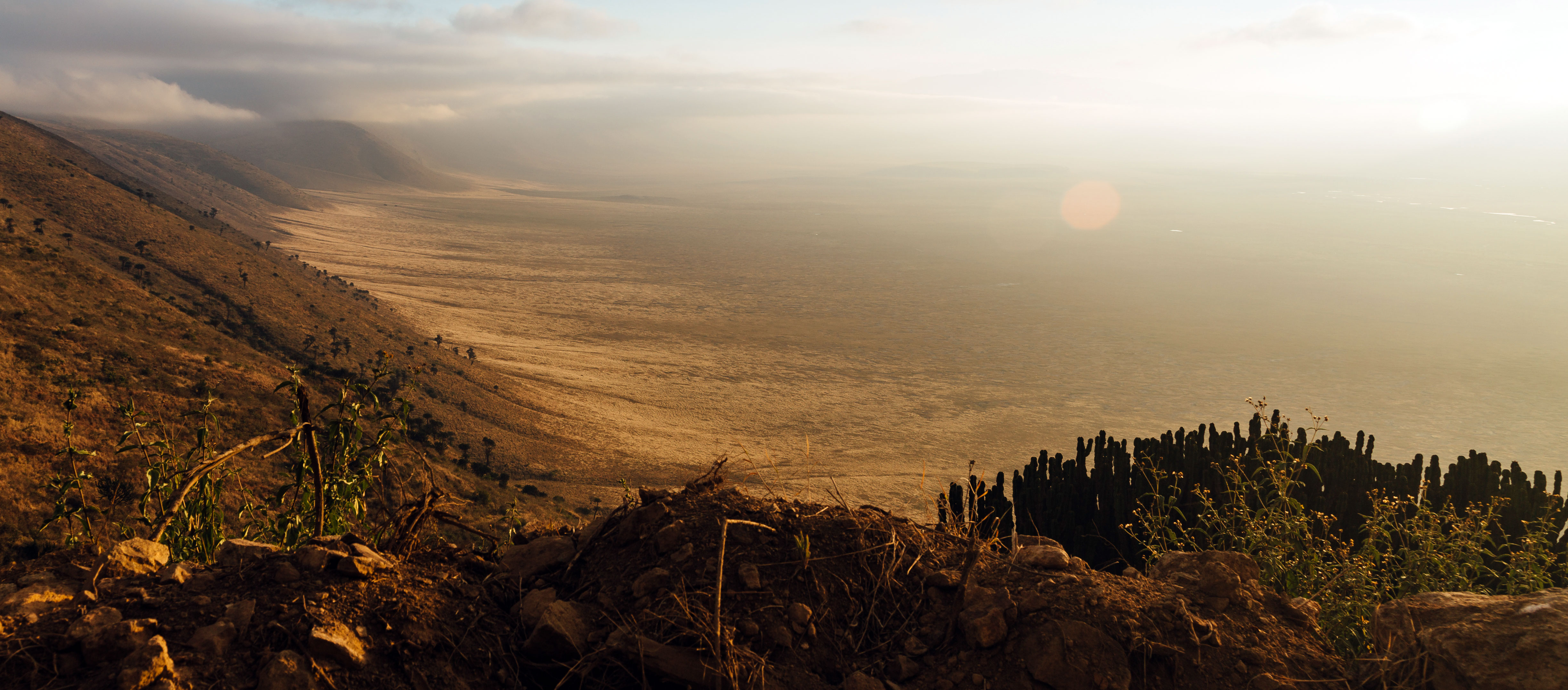
A free daily email with the biggest news stories of the day – and the best features from TheWeek.com
You are now subscribed
Your newsletter sign-up was successful
More than a mile deep and ten miles across, the Ngorongoro Crater is a natural amphitheatre filled with big game. The drive down from the crater rim is an adventure in itself, and a fitting curtain-raiser for a day spent exploring its unique environment.
As is staying at Entamanu, a tented camp on the crater’s rarely visited northern rim, where the nights may be wild and windy but the welcome is always warm.
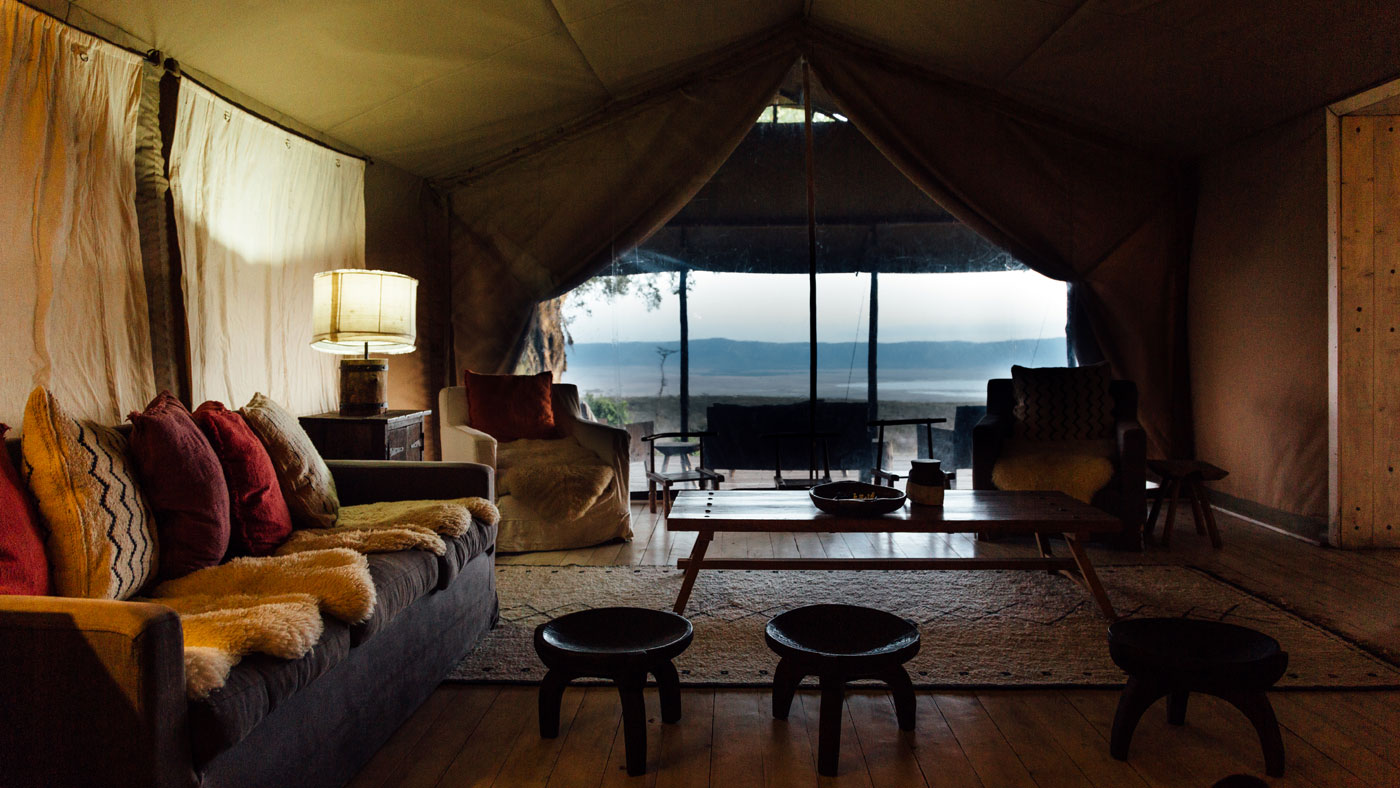
Where is it?
The Week
Escape your echo chamber. Get the facts behind the news, plus analysis from multiple perspectives.

Sign up for The Week's Free Newsletters
From our morning news briefing to a weekly Good News Newsletter, get the best of The Week delivered directly to your inbox.
From our morning news briefing to a weekly Good News Newsletter, get the best of The Week delivered directly to your inbox.
The Ngorongoro Conservation area, which includes the crater and the surrounding plains, is in northwestern Tanzania, about 80 miles from the Kenyan border. It is accessible in four or five hours by road from Kilimanjaro international airport, which is served by a variety of international airlines, including KLM via Amsterdam, Qatar Airways via Doha and Kenya Airways via Nairobi. Light aircraft flights can be arranged from Kilimanjaro to nearby Ngorongoro airstrip, or Lake Manyara airstrip, about a 90-minute drive from the lodge.
The landscape
The lodge has fine views over the Ngorongoro caldera, formed when a volcano collapsed after a massive eruption about 2.5 million years ago. Ten miles across, the crater floor is surrounded by near-vertical walls, which rise to a height of 2,000 feet.
The surrounding area is characterised by the textbook African landscape of golden savannah and acacia trees. From Entamanu, guests can watch the sun rise over the crater and set over the plains of the lower Serengeti, behind the lodge.
A free daily email with the biggest news stories of the day – and the best features from TheWeek.com
Although animals come and go from the crater as they please, it is big enough and diverse enough to function as a self-contained ecosystem. Forest, grassland, salt flats, a mineral lake and freshwater springs can all be found within its walls.
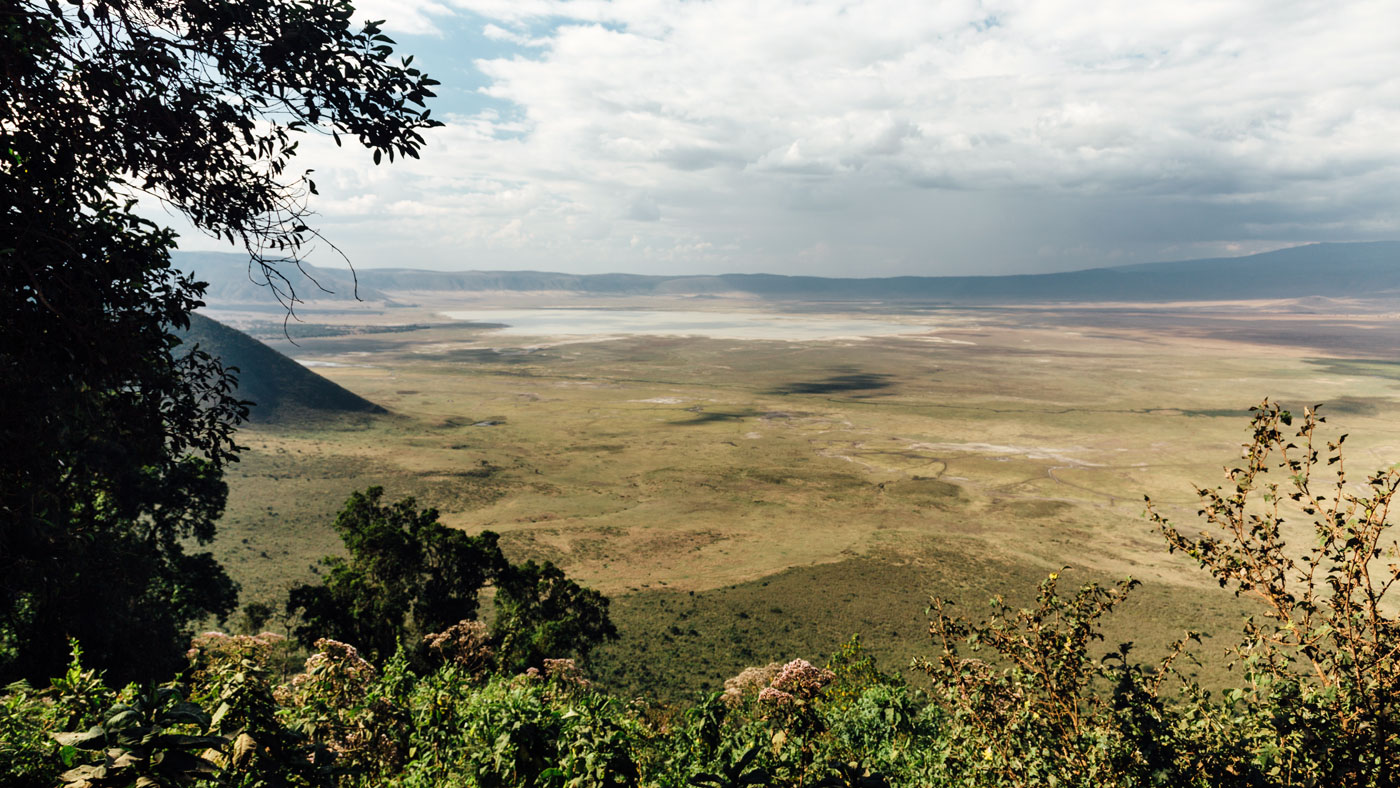
Game and activities
Ngorongoro is home to the densest concentration of predators in Africa, thanks to the herbivores which feast on the crater’s rich grassland. All of the big five are here - black rhinos, lions, elephants, buffaloes and leopards - as well as spotted hyenas, cheetah and jackals. However, leopards are shy and cheetah are kept at bay by the large number of hyenas and lions, so you’re likely to see more of the latter than the former. Birds are plentiful throughout the year, and during the wet season (November to May), the lake fills with flamingoes.
Off-road driving is forbidden in the crater, so some sightings may be from a distance - although guides are skilled at predicting animals’ movements and intercepting them on the nearest track.
Entamanu normally sends its guests into the crater with picnic breakfasts and lunches, to maximise the time for game viewing - so you may be out of the camp from 6am until after 4pm. An earlier return can be arranged, as can other excursions, including crater rim walks, day-trips within the Ngorongoro Conservation Area or a visit to a Masai village.
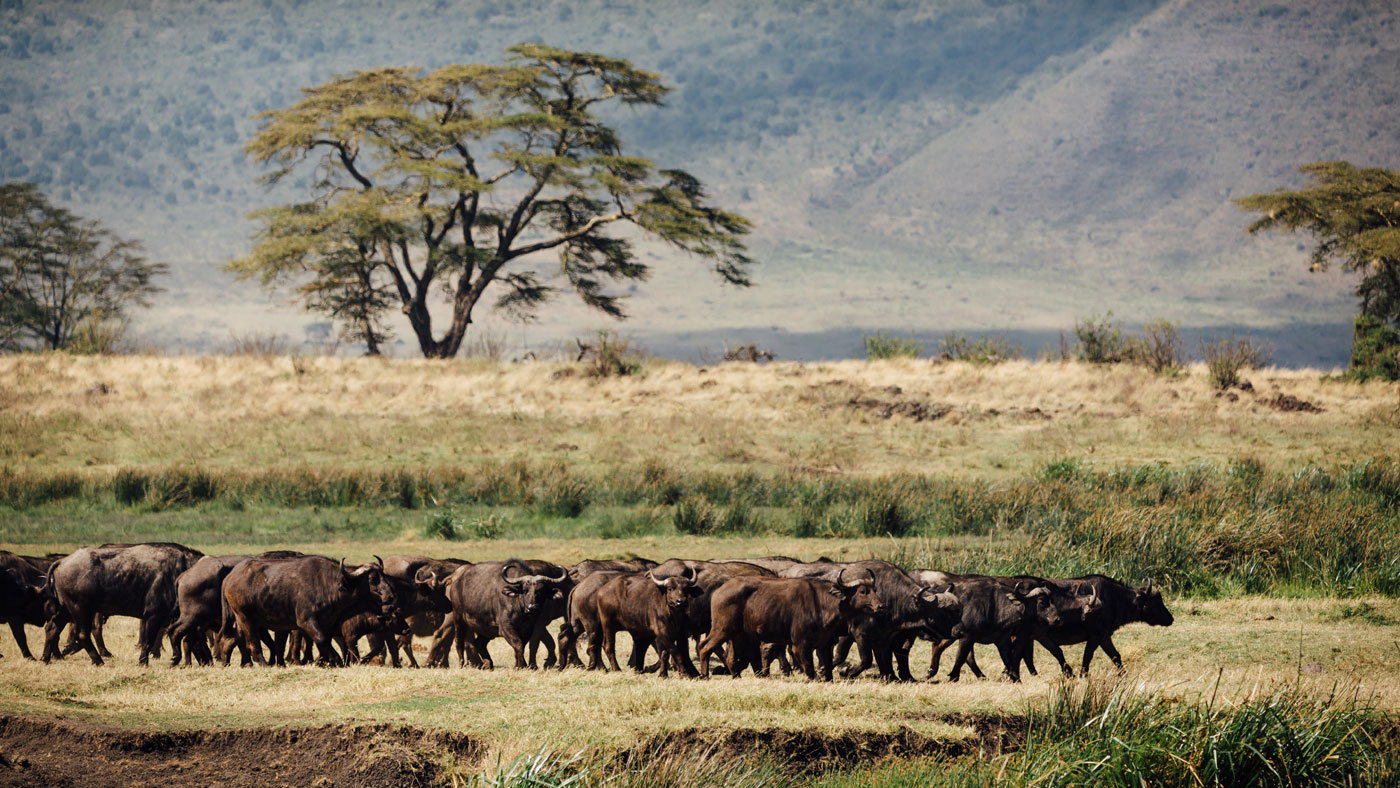
Accommodation and food
Guest accommodation at Entamanu Ngorongoro consists of seven large tents, each with an en suite bathroom and a heater to ward off the chill of the mornings and evenings. Decor is simple, rustic and tasteful: there’s nothing here to distract from the splendour of the surroundings. All tents have views of the crater.
The main lodge has a verandah-style deck, as well as two sitting rooms and a dining room, all heated by large log fires. Hearty meals - beef fillet with roast potatoes, for example, or chicken curry - are served at a communal table.
When to go
The long rains, in April and May, are a mixed blessing. Grey skies and heavy rain are common, and the lush green grass makes wildlife-spotting harder. As a consequence, however, this is also the quietest time of the year to visit an undeniably busy park - and the rain brings an influx of birds.
Grass dies back as the crater becomes progressively drier from June to October, which is the best month for game viewing. The short rains in November and December are lighter, more infrequent, and interspersed with long sunny spells. Blue skies and verdant foliage makes this a particularly photogenic season. Dry weather returns from January to March.
Since the crater rim is at significant altitude - 7,500 feet above sea level - it is noticeably cooler than lowland Tanzania. June and July are the chilliest months, when daytime temperatures typically reach just 8C to 12C - compared with 18C to 21C in November and December. The crater floor is typically about 5C warmer than the rim.
Price and booking
Rates for Chada Katavi start at about £600 per person per night in low season, including full board and most activities, but excluding flights and transfers. For more information and suggested itineraries, see the Nomad Tanzania website, and to book contact Yellow Zebra Safaris
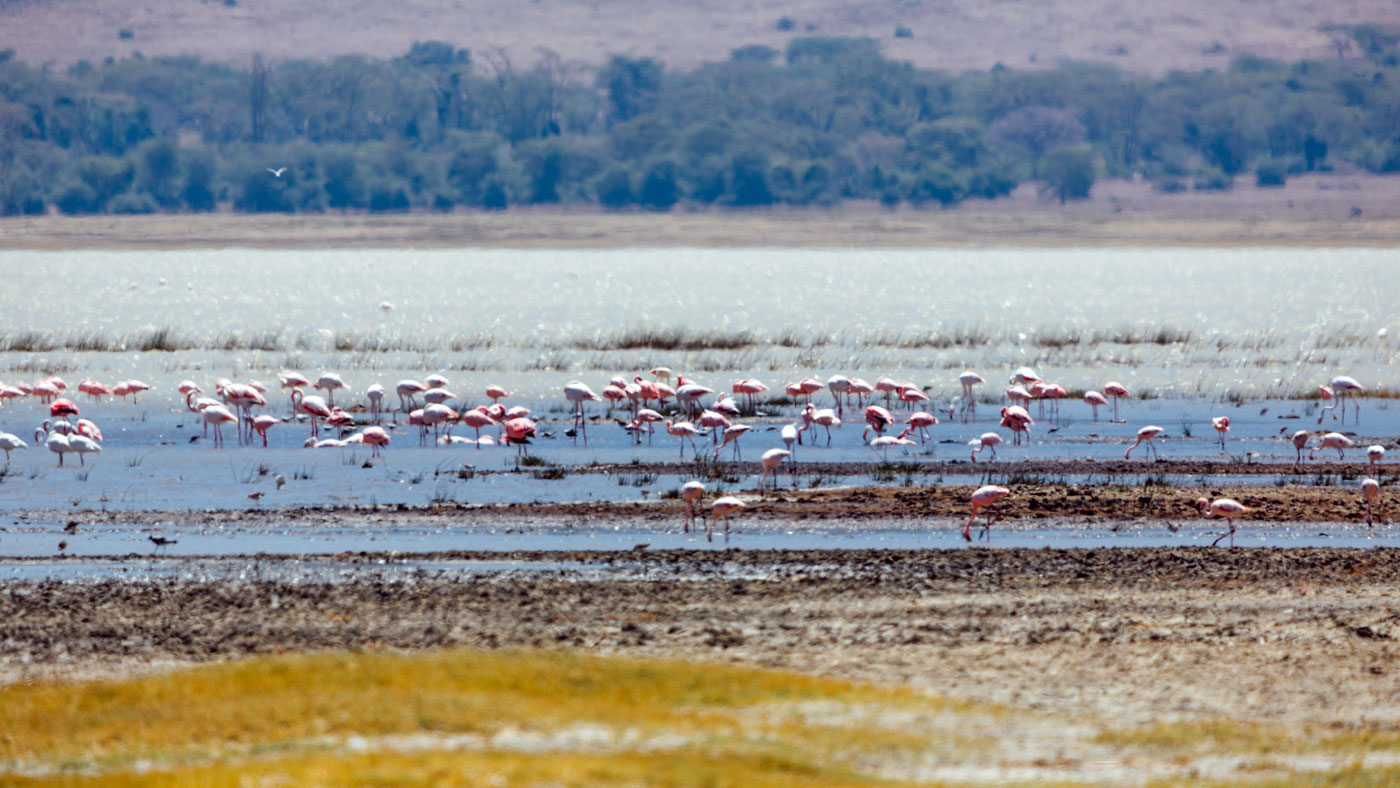
Holden Frith is The Week’s digital director. He also makes regular appearances on “The Week Unwrapped”, speaking about subjects as diverse as vaccine development and bionic bomb-sniffing locusts. He joined The Week in 2013, spending five years editing the magazine’s website. Before that, he was deputy digital editor at The Sunday Times. He has also been TheTimes.co.uk’s technology editor and the launch editor of Wired magazine’s UK website. Holden has worked in journalism for nearly two decades, having started his professional career while completing an English literature degree at Cambridge University. He followed that with a master’s degree in journalism from Northwestern University in Chicago. A keen photographer, he also writes travel features whenever he gets the chance.
-
 Political cartoons for February 15
Political cartoons for February 15Cartoons Sunday's political cartoons include political ventriloquism, Europe in the middle, and more
-
 The broken water companies failing England and Wales
The broken water companies failing England and WalesExplainer With rising bills, deteriorating river health and a lack of investment, regulators face an uphill battle to stabilise the industry
-
 A thrilling foodie city in northern Japan
A thrilling foodie city in northern JapanThe Week Recommends The food scene here is ‘unspoilt’ and ‘fun’
-
 Friendship: 'bromance' comedy starring Paul Rudd and Tim Robinson
Friendship: 'bromance' comedy starring Paul Rudd and Tim RobinsonThe Week Recommends 'Lampooning and embracing' middle-aged male loneliness, this film is 'enjoyable and funny'
-
 The Count of Monte Cristo review: 'indecently spectacular' adaptation
The Count of Monte Cristo review: 'indecently spectacular' adaptationThe Week Recommends Dumas's classic 19th-century novel is once again given new life in this 'fast-moving' film
-
 Death of England: Closing Time review – 'bold, brash reflection on racism'
Death of England: Closing Time review – 'bold, brash reflection on racism'The Week Recommends The final part of this trilogy deftly explores rising political tensions across the country
-
 Sing Sing review: prison drama bursts with 'charm, energy and optimism'
Sing Sing review: prison drama bursts with 'charm, energy and optimism'The Week Recommends Colman Domingo plays a real-life prisoner in a performance likely to be an Oscars shoo-in
-
 Kaos review: comic retelling of Greek mythology starring Jeff Goldblum
Kaos review: comic retelling of Greek mythology starring Jeff GoldblumThe Week Recommends The new series captures audiences as it 'never takes itself too seriously'
-
 Blink Twice review: a 'stylish and savage' black comedy thriller
Blink Twice review: a 'stylish and savage' black comedy thrillerThe Week Recommends Channing Tatum and Naomi Ackie stun in this film on the hedonistic rich directed by Zoë Kravitz
-
 Shifters review: 'beautiful' new romantic comedy offers 'bittersweet tenderness'
Shifters review: 'beautiful' new romantic comedy offers 'bittersweet tenderness'The Week Recommends The 'inventive, emotionally astute writing' leaves audiences gripped throughout
-
 How to do F1: British Grand Prix 2025
How to do F1: British Grand Prix 2025The Week Recommends One of the biggest events of the motorsports calendar is back and better than ever